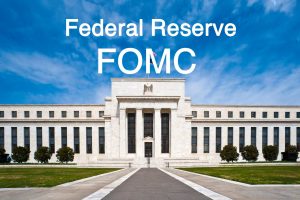The November FOMC meeting is scheduled for November 7 & 8, one day after the November 6 midterm election.
We are not looking, then, at the possibility of any further FOMC action on interest rates that might influence the election one way or another, but what about after the election? Is the FOMC likely to increase rates another 25 basis points at this next meeting? Let us look at what information the FOMC will have next week.
The bulk of the economic data that has arrived since the last FOMC meeting is not only very positive but also consistent with the FOMC’s projections. On the inflation front, both of the FOMC’s preferred measures of inflation – headline inflation and the core Personal Consumption Expenditure Index (PCE) – actually declined in September, as the attached chart shows; and inflation now sits right on its target of 2%. More importantly, there are few signs of its accelerating. Energy prices have started to slow, and the rate of growth in housing prices has dropped below 6% for the first time in a year. Both of these components’ prices typically start accelerating as inflation pressures increase.



Vice Chairman & Chief Monetary Economist
Email | Bio
Source: https://fred.stlouisfed.org/
Links to other websites or electronic media controlled or offered by Third-Parties (non-affiliates of Cumberland Advisors) are provided only as a reference and courtesy to our users. Cumberland Advisors has no control over such websites, does not recommend or endorse any opinions, ideas, products, information, or content of such sites, and makes no warranties as to the accuracy, completeness, reliability or suitability of their content. Cumberland Advisors hereby disclaims liability for any information, materials, products or services posted or offered at any of the Third-Party websites. The Third-Party may have a privacy and/or security policy different from that of Cumberland Advisors. Therefore, please refer to the specific privacy and security policies of the Third-Party when accessing their websites.
Sign up for our FREE Cumberland Market Commentaries
Cumberland Advisors Market Commentaries offer insights and analysis on upcoming, important economic issues that potentially impact global financial markets. Our team shares their thinking on global economic developments, market news and other factors that often influence investment opportunities and strategies.


